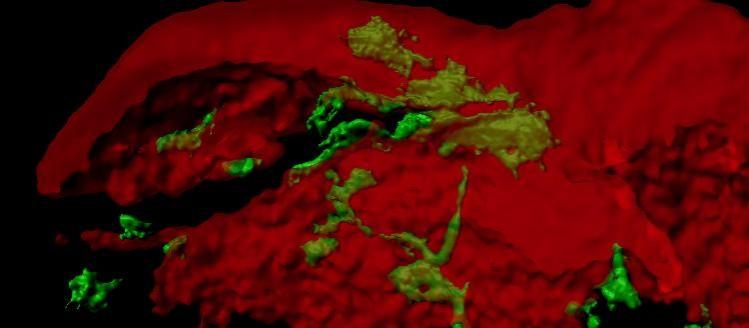Breast cancer is one of the most common forms of cancer afflicting women. It claims around 685,000 lives annually, and over 2 million cases are reported every year. Worsening the toll on the body, breast cancer can spread to the bones and grow there. Offering some hope for the potential mitigation of this process, scientists have identified a protein that is involved in it.
Through a new multi-institutional study, researchers have discerned that a protein called ZEB1 plays a key role in breast cancer metastases to the bones. The animal study found that the expression of the protein in cancer cells led to their metastasis in the bones. This discovery could open new avenues in the formulation of new therapeutic approaches for suppressing metastasis.
''We can therefore assume that this factor is expressed during tumour formation and that it directs cells that have acquired metastatic characteristics to the bones,'' said Dr. Didier Picard, corresponding author of the study, in a statement. The findings were published in the journal Nature Communications.
Role of Cellular Plasticity

Metastasis refers to the proliferation of cancer cells from the part where it first arose to another part of the body. Cancer cells permeate into their microenvironment from the primary site of a tumour. Following this, they circulate through the lymphatic vessels and blood and reach healthy tissues far from the site of their origin.
When it comes to metastatic breast cancer, the cancerous cells colonize the bones primarily. However, they can make their way to other vital organs such as the brain, liver, and lungs. The cellular and molecular mechanisms giving rise to different phases of metastasis are yet to be understood in their entirety. Nevertheless, studies have shown that the role of cellular plasticity in the process is a crucial one.
Cellular plasticity refers to the ability of cells to switch form and/or function. Tumour cells that turn metastatic, change their shape and acquire mobility. Through the current study, the team—which has been scrutinizing the mechanisms governing the process of metastasis associated with breast cancer—aimed to investigate the role of ZEB1 in breast cancer cell migration. The protein is known for increasing cell plasticity.
Making Its Way to the Bones

For the study, the authors conducted in vitro experiments in order to glean the manner in which cancer cells migrated and invaded other cells and tissues. They learnt that cancer cells that expressed ZEB1 traveled to bone tissues. However, those that did not express the factor did not move to the bones.
In order to confirm these results, the team transplanted cancer cells into the mammary glands (breasts) of mice. It was found that if ZEB1 was not expressed by cancer cells, metastasis primarily occurred in the lungs. Conversely, if ZEB1 was present, the development of metastases occurred in the bones as well; a pattern observed in women.

''Unlike in women, mice transplanted with human breast cancer cells develop metastasis to the lungs, not the bones. We, therefore, sought to identify factors capable of inducing metastasis in bone tissue and in particular tested the effect of the factor ZEB1,'' stated Dr. Nastaran Mohammadi Ghahhari, first author of the study.
The findings of the research affirm the relevance of the plasticity of cancer cells during the process of metastasis. In the long term, this could help inform new therapeutic possibilities in preventing the occurrence of metastases.

















